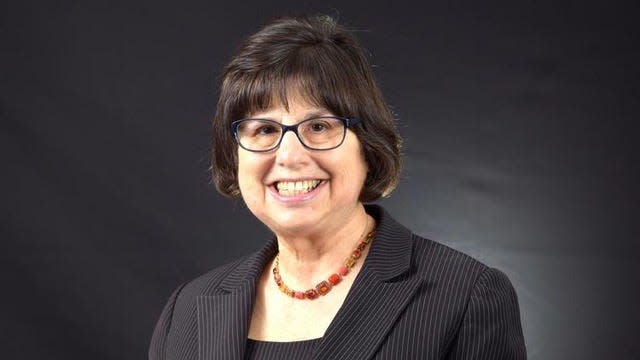Opinion: 'Houston, we have a problem.' Schools, parents must stop bickering, drop suspicion
Susan Tave Zelman is a former Ohio superintendent of public instruction, and the author of "The Buying and Selling of American Education: Reimagining a System of Schools for All Children."
These are not easy times to recommend a more prominent role for parents in schools — given recent shouting matches at school board meetings across the country.
Such scenes may well result from too little, rather than too much attention given to parents. Excluded voices grow frustrated and are ripe for manipulation. The weaker the connection to school, the greater the likelihood of believing charges of indoctrination or worse.
Lalitha Pamidigantam:Hilliard, state board showing how groups are spreading hate in Ohio school
Surveys generally reveal that a majority of parents support equitable and inclusive learning environments. Recent legislation, however, would seem to indicate otherwise.
Couched in language referencing "parents’ rights" and vague criteria banning "divisive" or uncomfortable content, bills across the country claim to be responding to some groundswell of concerns.
This insidious political strategy normalizes the prejudices of a minority, casting them against phantom teachers said to be indoctrinating students with divisive, uncomfortable, and dangerous concepts. Not only do such vague legislative requirements hobble (and frankly frighten) schools and teachers, they divert attention from serious issues, such as educational equity and quality.

No one is surprised that recent scores from the National Assessment of Educational Progress show that American students did not fare well during the pandemic. Nor is it any surprise that a closer look at those scores reveal further widening of the results of those at the top from those at the bottom.
This guest column is available free:Support the exchange of local and state ideas by subscribing to the Columbus Dispatch.
Further, it was expected that those at the bottom would continue to be disproportionately low-income and minority students, and they are. We have almost come to accept these realities as inevitable. What is both surprising and concerning is that the downward slide for all students began before the pandemic.
Houston, we have a problem, and it’s a big one.
Trans OSU student: Trans OSU student: 'I urge you to defend the young people of our state'
Finding a bridge
Community relations, including communication with parents, are a cornerstone of truly public education.
While feared by many (all those angry voices), the ability to hear and share with those outside of the school building and school day is sorely needed to cultivate honest support beyond the schoolhouse doors. Solid family relationships provide a shield against those who seek to manipulate fears through spreading inaccurate information about dangerous curricula and hidden intents.
Greg Lawson:Ohio must stop funding school bureaucracy and put kids first |Opinion
They also provide a bridge to the community at large, an absolute necessity if school districts are ever to be able to confront larger issues, such as the realities about which students succeed and which do not and what to do about it.
The importance of community groups
Educators would do well to learn from community groups already knowledgeable about the necessary skills for inclusion of stakeholder points of view in fostering change.
Collaboration with such groups not only provides legitimacy to school efforts at outreach, it also begins to recognize community assets, rather than hyper-focus on community deficits, a view often used to give cover for poor academic outcomes, and lack of parent engagement.
More:An 'educational disaster' is rocking kids in Columbus, rest of Ohio, researcher says
As educators move forward from the pandemic disruption, they must be open to creating a new vision of education.
Schools must become places that embrace the difficult task of listening to a broad spectrum of parent views, encouraging diversity-centered discussions between and among parents and other community members.
Such community-building efforts not only provide understanding of and support for curricular aims (insulation against outside manipulation), but it is the relationships between and among parents that tend to attract greater “parent involvement” of the kinds school often claim is lacking, such as attendance for conferences and open houses.
So long as some succeed in creating rifts between schools and parents, we will be unable to move forward with needed restructuring and improvements. Parents and schools are not each other’s enemy. We need to recall that we all play on the same team, and work on working together.
Susan Tave Zelman is a former Ohio superintendent of public instruction, and the author of "The Buying and Selling of American Education: Reimagining a System of Schools for All Children."
This article originally appeared on The Columbus Dispatch: How can parents, schools reconnect after pandemic disruptions-Ohio-Columbus

